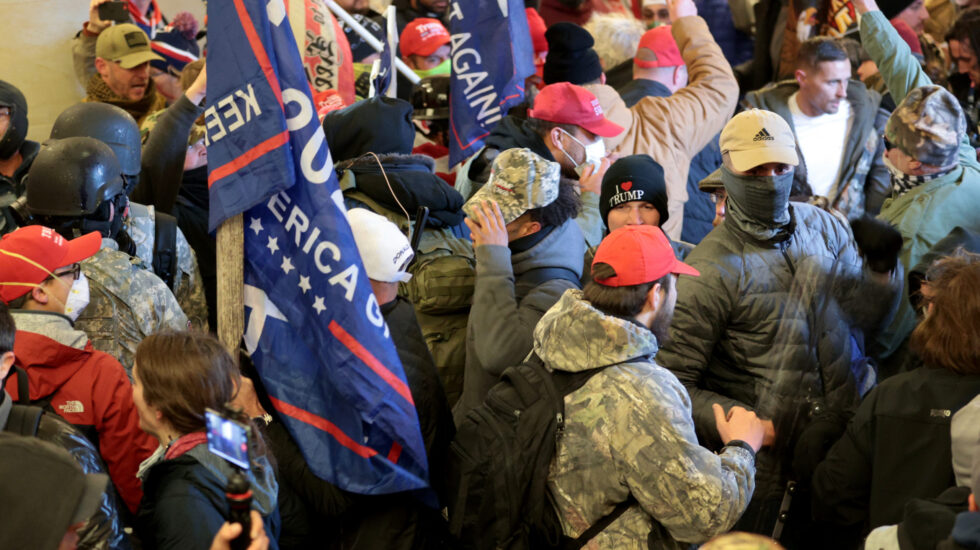Federal prosecutors handling the government’s case against the suspects in the January 6 riot at the Capitol have run into a unique problem. There is so much evidence, some judges are losing patience with how long the process is dragging out.
The government’s ongoing attempt to collect, sort and organize the evidence collected in this unprecedented investigation into the Insurrection is running headlong into the constitutional right defendants have to a speedy trial. Under federal law, a trial must begin within 70 days of a defendant being formally indicted, though that clock can be paused for all kinds of reasons.
As the New York Times reports, new arrests and charges are still happening now, seven months after the incident. Because of that, one judge presiding over the case of a Jan. 6 suspect, Judge Trevor N. McFadden, said the government has created a unique problem for itself. More arrests means more evidence that has to be turned over to the defense, which all leads to longer delays in resolving other cases. At a recent hearing, Judge McFadden expressed a loss of patience for how long this has dragged on.
From the Times:
Trying to assuage Judge McFadden, the prosecutor noted that the investigation of Jan. 6 was a uniquely challenging ordeal and that handing over all of this so-called discovery material was an important part of the legal process.
The judge was not impressed. “Freedom is also important,” he shot back.
It is exceedingly rare for a criminal trial to be dismissed over a violation involving speedy trials. But the investigation into the January 6 Insurrection is unlike any other in American history. To get a sense of the size and scope of this investigation, know this: More than 560 people have already been charged in the riot, more than in any other investigation since the DOJ was first formed in 1870.
The biggest factor causing delays in the judicial process appears to be the voluminous amount of video and audio footage investigators have to sort through. There was substantial television and social media coverage of the riot as it unfolded, but that’s just the tip of the iceberg.
Prosecutors have also collected:
Tens of thousands of hours of video footage from surveillance cameras in and around the Capitol building and from police body cameras;
There are piles of disks containing cellphone tower readings;
flash drives of radio transmissions;
hundreds of thousands of tips from people around the country;
texts and photographs from the thousands of cellphones federal agents have confiscated.
The government has also noted it has collected more than a million posts that relate to its investigation from right-wing social media app Parler.
All of that evidence needs to be gathered and catalogued. It’s such a big job a special group of prosecutors was organized to handle it. The Deloitte Financial Advisory Services was also hired to create a database meant to give defense lawyers the ability to find evidence related to their clients and search for videos by location on the Capitol grounds.
More from the New York Times report:
Complicating matters, the rioters on Jan. 6 moved as a mob, often working in proximity or concert. That has meant that much of the discovery data is “overlapping and interlocking,” as prosecutors have said, and needs to be shared with multiple defendants. “It doesn’t compare to any case that has ever occurred in the history of our government,” a prosecutor said at Mr. Hale-Cusanelli’s hearing.
Several judges have complained about the slow pace of the investigation, but Judge McFadden, A Trump appointed judge, has been the loudest and most consistent critic. He even raised the concerns again Monday, according to the Times story, during a hearing involving the founder of a group called Cowboys for Trump and who was recently offered a deal to plead guilty to his charges.
Some legal experts think the complaints about speedy trials are just saber-rattling by judges looking to keep prosecutors on their toes. But some defense lawyers have begun bringing it up.



